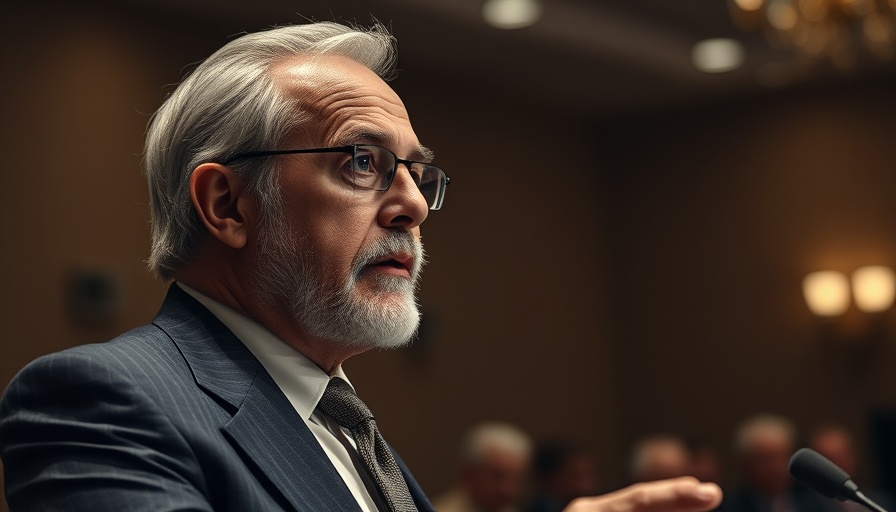
Jerome Powell's Warning: Tariffs, Inflation, and Economic Growth
In a recent address, Jerome H. Powell, the chair of the Federal Reserve, raised alarms about the implications of former President Trump's tariffs on the U.S. economy. Despite the economy's current favorable conditions, Powell's tone suggested a greater concern for the future, marking a shift in central banking expectations amid growing economic uncertainties.
The Rising Tide of Tariffs
Powell highlighted that the impacts of these tariffs are likely to be more severe and prolonged than anticipated. His analysis indicates a troubling correlation between these tariffs and the potential for an exacerbated inflationary environment. As tariffs lift prices, consumers may feel the pinch in their wallets, leading to slower economic growth and possibly increased unemployment rates.
The Inflation Dilemma
Echoing sentiments echoed through economic discussions, Powell stated, "While uncertainty remains elevated, it is now becoming clear that the tariff increases will be significantly larger than expected." This assertion raises questions about how long the inflationary effects will last and whether they will become entrenched in consumer expectations. Federal Reserve officials are keen to prevent these price hikes from morphing into a long-term economic issue. Powell's emphasis on keeping longer-term inflation expectations anchored reveals a strategic priority to combat persistent inflation, which he characterized as an "elevated" risk.
Unpacking Economic Effects
The broader economic implications of these tariffs can't be understated. Powell warned that the effects may unfold in unexpected ways, creating ripple effects throughout various sectors. For business leaders and consumers alike, understanding the relationship between tariffs and inflation could guide better decision-making in a turbulent economic landscape.
Historical Context: Lessons from the Past
This warning comes at a time when historical data points to the damage that tariffs can inflict on an economy—especially seen during the Great Depression when protectionist policies worsened economic hardships. Drawing parallels from history, it emphasizes the potential risks inherent in such aggressive trade strategies.
Looking to the Future: Predictions and Opportunities
As we digest Powell's insights, important questions arise regarding the future of monetary policy and economic strategies. What will it take for the Federal Reserve to adjust interest rates appropriately in the light of elevated inflation risk? Keeping abreast of economic indicators in the coming quarters will be vital for navigating this uncertain financial terrain.
A Call for Preparedness
For consumers, policymakers, and business leaders, involves preparing for possible outcomes is crucial. Adjusting business planning and consumer behavior—such as reviewing budgets or investing prudently—could mitigate the impact of rising prices. Powell’s warning serves as a clarion call to reconsider strategies in anticipation of possible price hikes driven by these tariffs.
Final Thoughts: The Road Ahead
As the Federal Reserve navigates these challenges, the balance between managing inflation and sustaining growth becomes increasingly delicate. Stakeholders must be proactive in understanding how these tariffs will shape the economic landscape. Keeping abreast of these developments is essential for informed decision-making. Stay tuned for updates on this evolving situation that promises to impact everyone—from everyday consumers to high-level investors.
 Add Row
Add Row 
 Add
Add 


Write A Comment